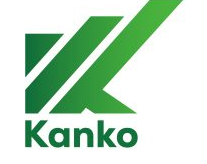Workshop Report
Kanko held a workshop that was facilitated by MRS Mary Tobbin Osei (the managing consultant) who is a very experienced consultant with many accomplished feats with global organizations such as UNICEF, UN and a host of them. The five days’ workshop was organised by Gender Studies and Human Rights Documentation Centre in Accra.
The aim of the workshop was to offer capacity building for the staff and partners in monitoring, evaluating and learning, proposal writing and resource mobilization, and report writing skills.
The trainings were conducted using predominantly the facilitative and interactive methods. However, in delivering some technical information, the training facilitator interjected the training with some relevant instructor-base methods. This was in the form of power point presentation, which were always followed by questions and answer sessions and participants had the opportunity to discuss the presentations. By using this approach, the facilitator emphasised on interactive learning; keeping the trainees more engaged and receptive to new information. Some key interactive methods include;
- Brainstorming
- Buzz discussions
- Panel discussions
- Case studies
- Reading handouts
- Demonstrations
- Role playing
All the interactive methods were helpful to get the trainees involved and increased their interests. The trainees acquired a lot during the training workshop and are ready to apply the lessons in their fields of work.
The feedbacks received were nothing short of encouraging and thanks to the brilliance of the facilitator, who came up with such involving methods to be able attain the full undivided attention of the trainees.
Baseline Study
Gender Studies and Human Rights Documentation Centre (GSHRDC) contracted Kanko to undertake a baseline study on Transforming Gender Social Norms and ending violence against women and girls in rural communities in Ghana. The study involved 10 communities in the Okere District and Akwapim North Municipal of the Eastern Region in 4 phases namely; desktop review and consultation with stakeholders, preparation and planning, field data collection, data analysis and documentation. Both secondary and primary data were employed and this included the usage of structured and semi-structured questionnaires and observation to solicit information through Key Informant Interviews (KII), Individual In-depth Interviews (III) and Focus Group Discussions (FGDs). Both random sampling and purposive sampling techniques were used to select the study respondents. A total of 42 FGDs, 42 KIIs and 2 IIIs were conducted, whilst a total of 530 survey questionnaires were administered.
The baseline study found a high prevalence of Gender-Based Violence (GBV) and Violence Against Women and Girls (VAWG) in all the ten project communities. There are frequent disagreements and fights by men and women from the same family. The fights are predominantly verbal and significantly physical. All other forms of abuses against women prevail in these communities including psychological, economic and sexual (including marital rape). Both men and women suffer these abuses but women suffer it more. A whopping 90% of the respondents said yes to women experiencing violence in their homes. Only 10% said no.
Regarding Community Response to VAWG and victims/survivors’ access to support services, the study found that none of the communities endorse VAWG yet there are no efforts to prevent or minimize its occurrence. Many community members support women and girls to report cases of abuse to their clan heads and traditional authorities but only a few will support reporting an abuse to the police. Majority of the survey respondents (79%) indicated that there are no sanctions in place against perpetrators of VAWG.
The state institutions’ FGDs unveiled the collaboration between the state agencies on VAW. When the cases are reported to Department of Social Welfare (DSW), the police (DOVVSU) follows up to investigate and establish evidence for court processing. Sometimes they are unable to conduct such investigations due to inadequate resources such as vehicles and limited personnel. They therefore prioritize the most pressing cases and work on them. As a result, they advise some of the victims to report to the unit committees.
Concerning knowledge of laws and policies addressing VAW, majority of the community members have little or no knowledge about the Domestic Violence Act which protects women from GBV. They also do not know about laws protecting their rights to inheritance. As high as 93% responded “no” to the question of knowledge about the laws and policies. Those who do know about it, have only heard of it, but do not know exactly what it contains or entails. Consequently, the lack of knowledge on the content of the Act is preventing survivors from receiving effective support including legal advice on procedures.
We can confidently conclude that, the study has adequately established a baseline status that will be used to measure project progress against the set indicators over the course of the project implementation and eventually evaluate the impact at the end line. The drivers of VAW include the patriarchal nature of the communities, perception of male superiority over women as well as women’s limited involvement in decision making. There is limited knowledge of the laws and policies addressing VAW. Thus, the study explicitly illustrates that issues of VAW is a critical development issue in all the ten communities.
Payment for Ecosystem Services (PES)
Over the past few years, we have been involved in the Integrated Land Resource Governance (ILRG) Project, funded by USAID and managed by Tetra Tech. We have been piloting some innovative processes, supporting cocoa communities in the Wassa Amenfi Municipal to mitigate the effect of climate change on their cocoa production. We have mapped the communities; conducted land seals for their farms; conducted climate change trainings; used messages on podcast to sensitize them on climate change; introduced them to Eco games and provided them with trees to plant in and off cocoa farms. The latest in the processes we are testing is the PES, where farmers are paid for planting, nurturing and keeping trees on their land. We are learning that PES is great and communities are welcoming it but all the earlier processes were so relevant and have contributed to farmers understanding of climate change and the need for them to plant trees in and out of their cocoa farms. A critical process is the setting up of a governance and management system in the communities for the PES.
Training on Gender & Social Inclusions for Global Mamas Ghana
Over the past few years, we have been involved in the Integrated Land Resource Governance (ILRG) Project, funded by USAID and managed by Tetra Tech. We have been piloting some innovative processes, supporting cocoa communities in the Wassa Amenfi Municipal to mitigate the effect of climate change on their cocoa production. We have mapped the communities; conducted land seals for their farms; conducted climate change trainings; used messages on podcast to sensitize them on climate change; introduced them to Eco games and provided them with trees to plant in and off cocoa farms. The latest in the processes we are testing is the PES, where farmers are paid for planting, nurturing and keeping trees on their land. We are learning that PES is great and communities are welcoming it but all the earlier processes were so relevant and have contributed to farmers understanding of climate change and the need for them to plant trees in and out of their cocoa farms. A critical process is the setting up of a governance and management system in the communities for the PES.
The Managing Consultant of Kanko, Mrs. Mary Tobbin Osei took up the facilitation role in the
training on gender equality and social inclusion for Global Mamas in a period of three (3) months. As a
women empowerment organization, Global Mamas saw the need to build the capacity of their staff and
communities in Gender Equality and Social Inclusion. The goal of the training was to educate the staff,
partners and the community to:
1. Understand the basic concepts of gender equality.
2. Appreciate why it is important for their life and business.
3. Have strategic tools for seeking women’s active and meaningful participation at all levels.
The Kanko consultant used Blended Learning Approach to conduct all the seven (7) scheduled
trainings using multiple facilitation methods. The several methods for facilitation provided the most
effective way to help participants (especially adults) to open up, express themselves freely and learn
from each other. There were many interactive methods for the training sessions and these include:
1. Brainstorming
2. Buzz discussions
3. Group discussions
4. Role Play and simulations
5. Case studies
6. Ice-breakers and energizers
7. Plenary conversations
The Gender Equality and Social Inclusion training benefited 413 participants from several of Global
Mamas communities in and around Akuse, Odumase Krobo and Cape Coast between November 23,
2021 and January 21, 2022. It gave them the opportunity to understand the concept of gender equality,
differentiate between sex and gender as well as biological roles and gender roles. The training also gave
participants insights into productive and reproductive works as well as gender stereotypes. They also
learned about gender equality and equity and fully appreciated the causes and effects of gender-based
violence (GBV). At the end, participants left with a great commitment to do something about gender
inequalities and contribute to addressing the prevalence of GBV in Ghana.
Team Building Retreat For UNESCO Ghana
The Managing Consultant of Kanko (Mrs. Mary Tobbin Osei) was contracted by UNESCO Ghana to facilitate a 2 day retreat on team building. The management of UNESCO Ghana, following a marginal growth in staff numbers found the need for team building retreat to improve upon staff cohesion and collaboration. The main purpose was to bring all staff together out of the office and make sure that everyone connects on a positive level. It was also to gather ideas on how to better relate to each other and with external stakeholders, including implementing partners. Diverse activities and organizational development methods were used to make the retreat programme exciting and a learning experience at the same time. Opportunities were created for team members to get to know each other better and to connect more strongly.
The team building activities include excursion, ice-breakers, energizers, dancing competitions, pick and act game; sharing of meals and drinks together; group discussions and plenary discussions. Group members used innovative approaches, including poetry recitals, theater and PowerPoint presentations to present their group work to other team members. Also, team members were offered opportunities to receive and give constructive feedback to each other. Many team members were given the opportunity to take up leadership roles at one point or the other and to exhibit their talents and skills to team mates. There were other unplanned activities like pushing to start the team bus and boat riding that turned out to be a learning experience.
The retreat ended with a dinner on the second night with lots of fun that promoted bonding with each other. To build and sustain a strong team that is operating effectively and efficiently to achieve the mission of UNESCO Ghana, the following actions were agreed to be taken; Training / Conversation on stress management, emotional intelligence and ethics; Communicate more effectively using multiple options; Institute a monthly happy hour; and share secret letter with management. To ensure commitment to the agreed actions and other recommendations, a team was nominated to spearhead the implementation process.
MAIDEN SUAHUNU EXPEDITION
The Suahunu Project, being an initiative of Kanko, has been set in motion to make a positive impact on our world. The target audience are school going children who undoubtedly are the future of this generation and as such, the fate of the longevity of human existence rests on their fragile shoulders. The Suahunu project is to equip young people and build them up with a certain sense of responsibility to the things of nature and ultimately contribute to reducing the dangers of climate change.
Preaching and teaching the young ones about environmental conservation and climate resilience is a good step to instill new attitude for sustainable development in the near future and beyond. The Suahunu Project seeks to give a detailed insight into nature and the role natural bodies play in our world and also let them know how the misuse or maltreatment of our environment has greatly affected us today, not just Africa but the whole world at large This Project took off on Tuesday 24th March 2022, with Ascot school as our very first Partner. We visited the Bunso Eco Park in the eastern region. It is rich in history as well as nature. It was a very fun yet a very interesting learning experience for all who were present, not just the school children. Getting to know the uses of certain kinds of tress in construction of railways and learning that a tree is over two centuries old (205). It was truly fascinating and very indulging. We were taken to a cocoa farm and we saw ourselves hoe the cocoa fruit is harvest and how the seeds are dried and processed.
It was a lot of fun and it was a vastly knowledgeable encounter, the Proprietress of Ascot school was present to see and hear and experience it firsthand. All of this is being done to get the school children to appreciate nature and also preserve our environments in their own small creative way. Emphasis was on how preserving our environments can help improve our climate.
As our slogan goes “SUAHUNU – EXPERIENCE IT YOURSELF”. It was truly an experience worth experiencing yourself. The maiden expedition was a success, there are more to follow and this will truly be of some benefit to the world in the long run.

Maiden Suahunu Expedition
The Suahunu Project, being an initiative of Kanko, has been set in motion to make a positive impact on our world. The target audience are school going children who undoubtedly are the future of this generation and as such, the fate of the longevity of human existence rests on their fragile shoulders. The Suahunu project is to equip young people and build them up with a certain sense of responsibility to the things of nature and ultimately contribute to reducing the dangers of climate change.
Preaching and teaching the young ones about environmental conservation and climate resilience is a good step to instill new attitude for sustainable development in the near future and beyond. The Suahunu Project seeks to give a detailed insight into nature and the role natural bodies play in our world and also let them know how the misuse or maltreatment of our environment has greatly affected us today, not just Africa but the whole world at large.
This Project took off on Tuesday 24th March 2022, with Ascot school as our very first Partner. We visited the Bunso Eco Park in the eastern region. It is rich in history as well as nature. It was a very fun yet a very interesting learning experience for all who were present, not just the school children. Getting to know the uses of certain kinds of tress in construction of railways and learning that a tree is over two centuries old (205). It was truly fascinating and very indulging. We were We were taken to a cocoa farm and we saw ourselves hoe the cocoa fruit is harvest and how the seeds are dried and processed.
It was a lot of fun and it was a vastly knowledgeable encounter, the Proprietress of Ascot school was present to see and hear and experience it firsthand. All of this is being done to get the school children to appreciate nature and also preserve our environments in their own small creative way. Emphasis was on how preserving our environments can help improve our climate.
As our slogan goes “SUAHUNU – EXPERIENCE IT YOURSELF”. It was truly an experience worth experiencing yourself. The maiden expedition was a success, there are more to follow and this will truly be of some benefit to the world in the long run.
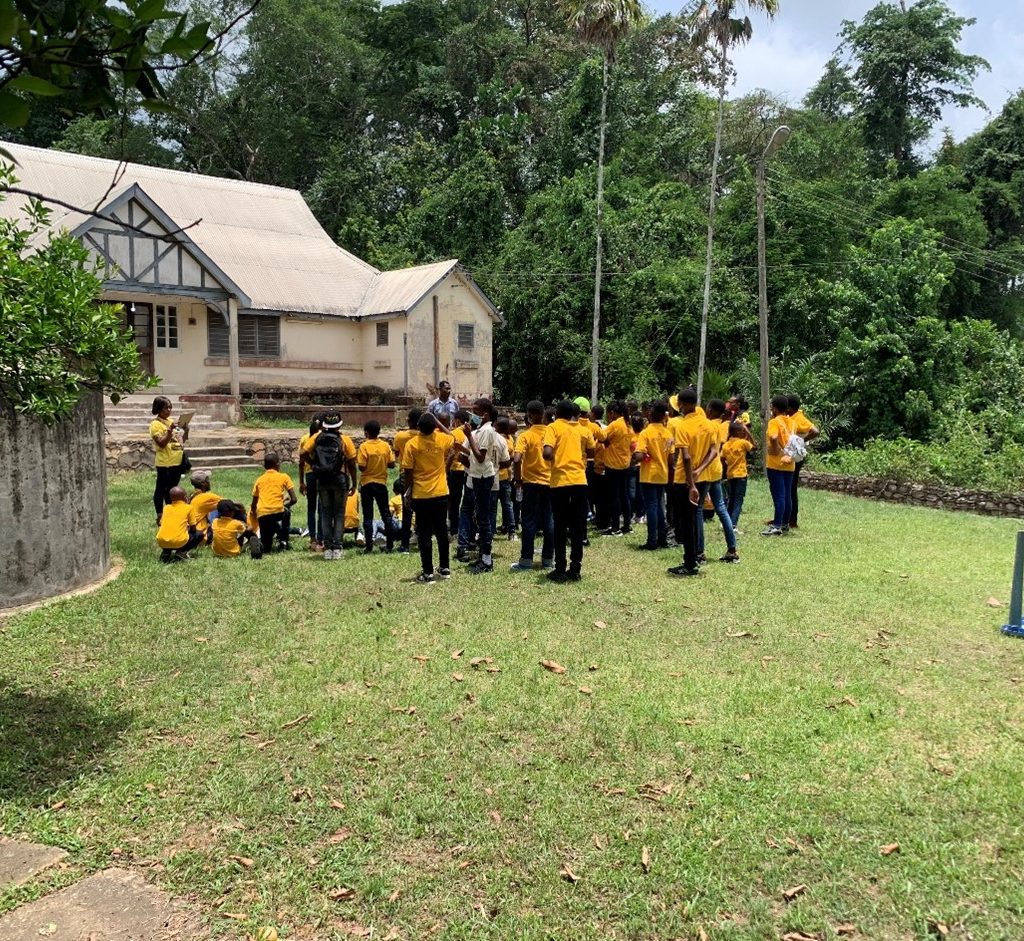
Gender Equality and Inclusion Self-
Assessment (GEISA) for Plan International
Ghana
Plan International Ghana (PI Ghana) engaged the services of Kanko (KAs) to facilitate a Gender Equality and Inclusion Self-Assessment (GEISA) as part of its wider commitment to Gender Equality and Inclusion (GEI). The purpose of the GEISA was; (1) To undertake a learning and review process on GEI across all PI Ghana’s work, both internal and external; and offices; (2) To identify the strengths and challenges of Pl Ghana’s gender and inclusion work in order to determine concrete steps for making improvements.
A mixed method was used to generate a combination of quantitative and qualitative data through diverse participatory approaches. The facilitators took inspiration from the PI Ghana’s GEISA Guidelines and Toolkit and developed tools to solicit appropriate responses from different participants. The assessment covered all PI Ghana staff from the two (2) Programme Influencing and Impact Areas (PIAAs) in Northern Ghana (Wa) and Southern Ghana (Ho); all PI Ghana’s supporting offices in Tamale, Sunyani, Koforidua and Winneba; the Country Office (CO) in Accra; selected key strategic and implementing partners at all levels and project communities across the country.
The qualitative data collection entailed Focus Group Discussions (FGDs) and Key Informant Interviews (KIIs) while quantitative data was collected only from staff of PI Ghana through online survey (40 staff responded). In total, 57 FGDs and 28 KIIs were conducted throughout the GEISA. Respect for privacy, confidentiality and rights to anonymity were observed throughout the assessment as well as adherence to all Covid-19 protocols. The data from the diverse sources were analysed and synthesised to form the basis for the assessment findings, conclusions and recommendations.
The findings of the self-assessment were organised according to the GEISA domain areas namely; Offices and Staff; Programmes and Influencing; Marketing and Communications and Partnerships. Each domain revealed: What is going well? What is not going too well? and What should be done differently? All the domains were further broken down into relevant sub-topics for detailed analysis. These include; Workforce composition; Informal culture and integration of policies and processes into formal culture; Capacity building/learning; Availability of resources for GEI promotion; M & E of the impacts different programmes have on social groups among others.
PI Ghana is diligently implementing PI Ghana’s gender and social inclusion policy. There are some policies and systems in place that support positive informal and formal organisational culture. Also, there is good understanding and application of GEI among PI Ghana staff and partners but more needs to be done to improve communities understanding of the concept. Again, the facilitators found ample evidence that PI Ghana is totally committed to GEI and has prioritized it.
Although gender equality and Inclusion is adequately mainstreamed into PI Ghana’s organisational structures and programmes, more need to be done to ensure inclusion of other vulnerable groups like Persons with Disabilities. PI Ghana is not adequately contributing to tackling the systemic causes of gender inequalities in Ghana. The organisation’s work on GEI is centred on its office, among staff and partners and slightly in its implementing communities. It is important that PI Ghana makes efforts to influence power relations and inequalities in the policies and governance of Ghana at the local and community levels.
PI Ghana organised a workshop in Accra with selected stakeholders (Tomreik Hotel, East Legon) on March 11, 2022 to validate the key findings and recommendations for the final GEISA report. The programme of activities included; presentation of KAs findings; plenary discussion of findings, clarifications and contributions by stakeholders. The workshop was organised in strict compliance with all COVID-19 protocols.
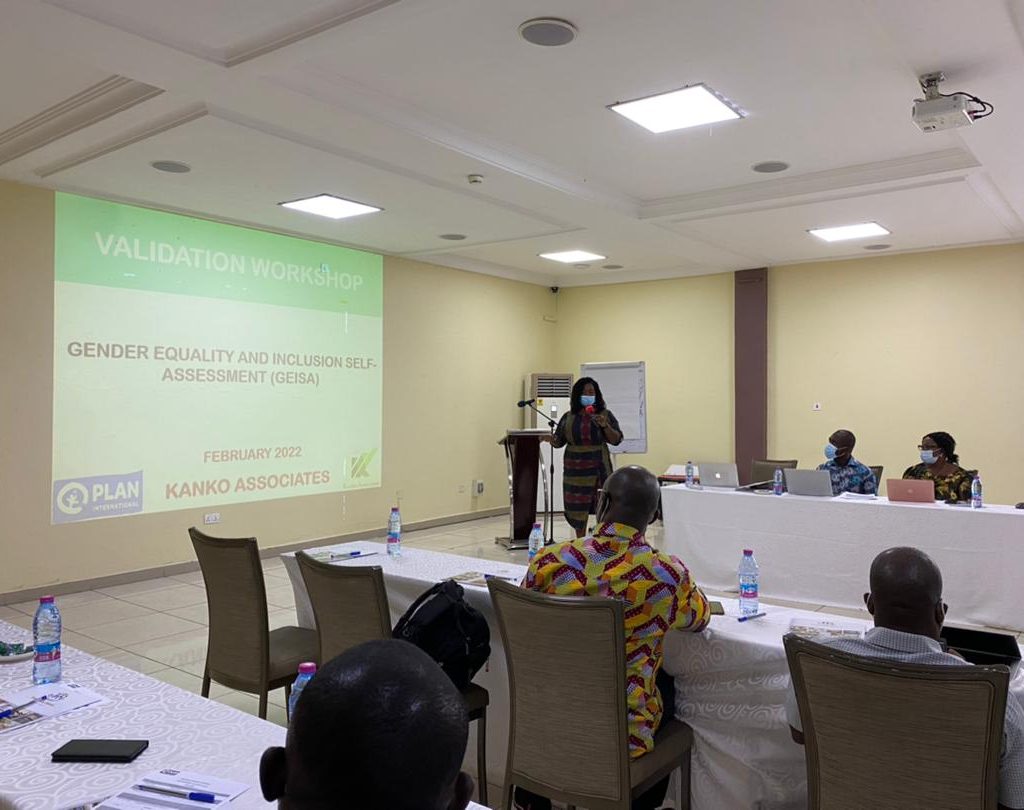
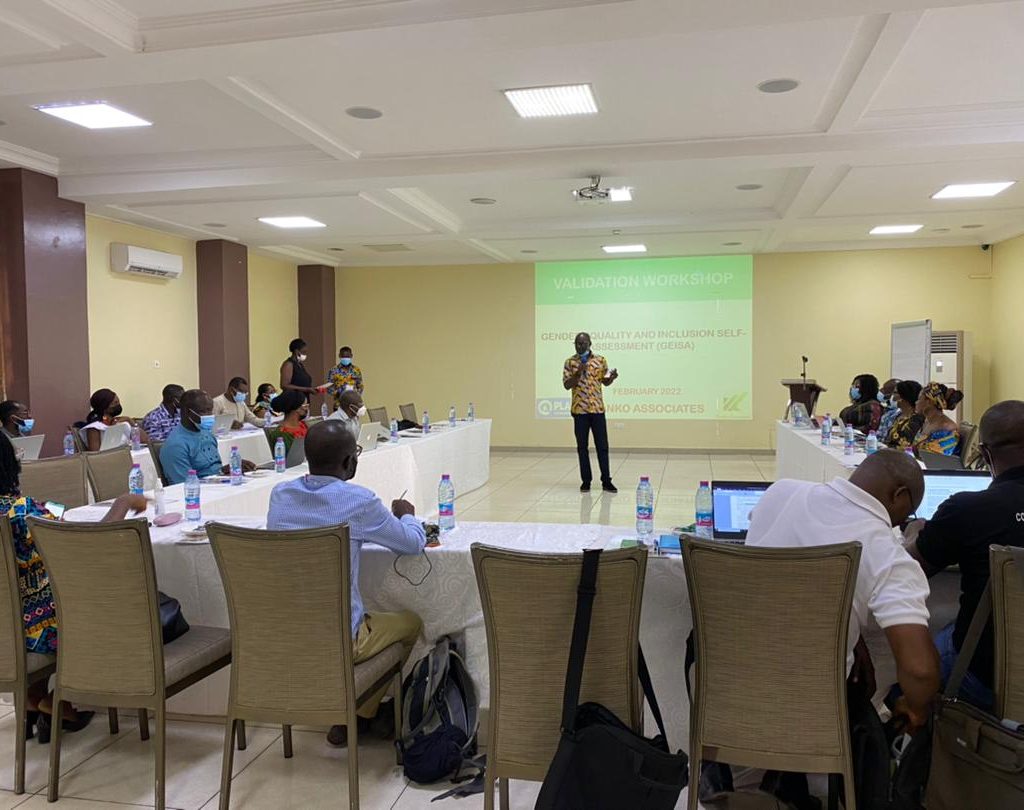
Green Ghana Day 2022
As part of the Green Ghana Day celebrations, Suahunu Project, an initiative of Kanko involved many children from a number of our partner schools. This was part of the implementation of our maiden “One child, One tree” initiative, in collaboration with the Forestry Commission. The national tree planting exercise on Green Ghana Day 2022 was themed “Mobilizing for a Greener Future” and scheduled for Friday, June 10, 2022.
In all, about 150 children participated in the tree planting exercise from four (4) of our partner schools namely; Ascot School, Tantra Hill; Learning Skills International School, Adjiringanor; Hallmark International School, Haatso and; Adjiringanor Basic School. The school children planted 165 tree species comprising shade/forest, coconut, mango and orange seedlings at the individual level and in communal with their schoolmates. In this way, the children joined the adult population to plant seedlings in public spaces mainly on their school compounds. Some of the children, with the consent of their parents, took home seedlings for individual planting, nurturing, and ownership.
The Suahunu team, jointly with the partner schools have established monitoring systems to monitor the growth of the planted trees as part of the respective schools’ extra curriculum activities. This is meant to promote the love for nature and its conservation among young people in the fight against deteriorating climate change.
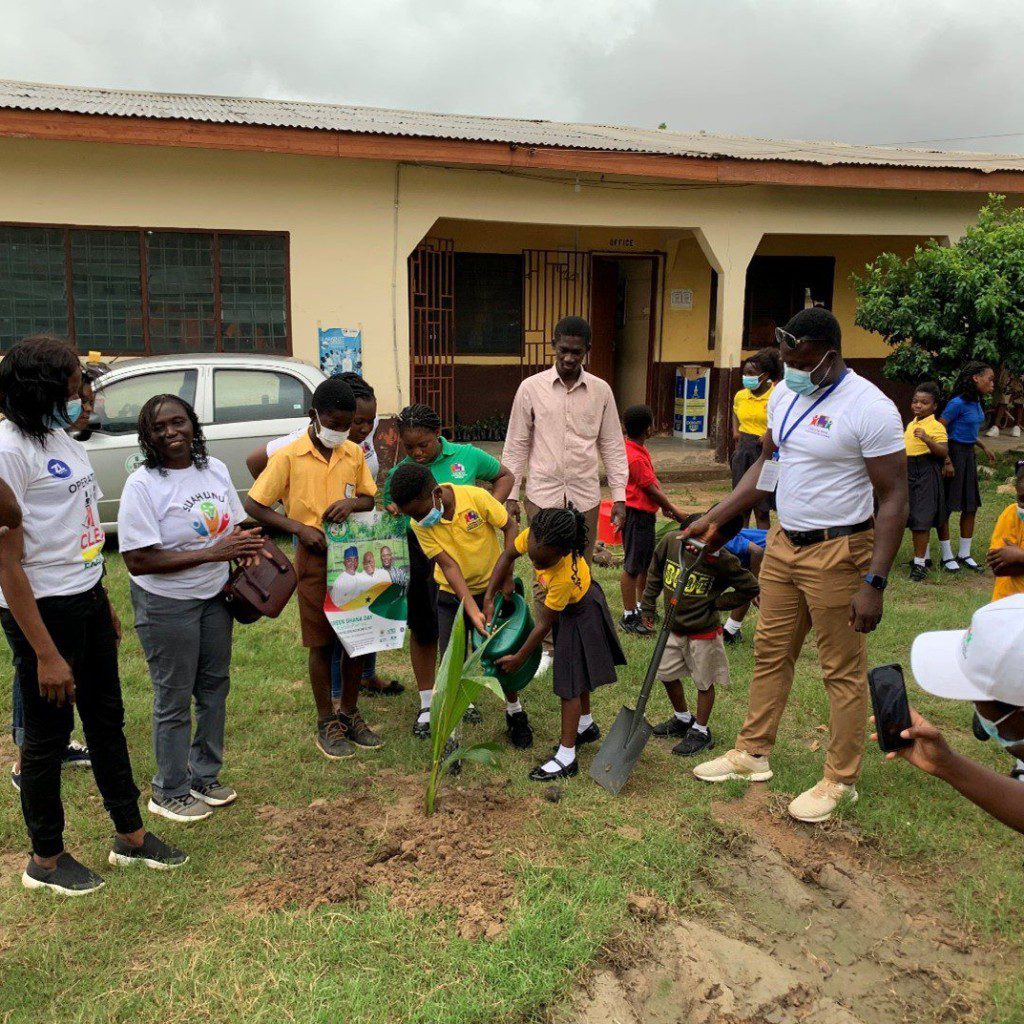
SusDA Participates In National Climate Change & Green Energy Week
SusDA a subsidiary of Kanko, in the last few years, has been introducing Children to the world of Climate Change. SusDA as an NGO has implemented ideas and strategies that would in turn be beneficial to the society as Children and youth are getting needed knowledge and a level of understanding on how climate change affects us as a population.
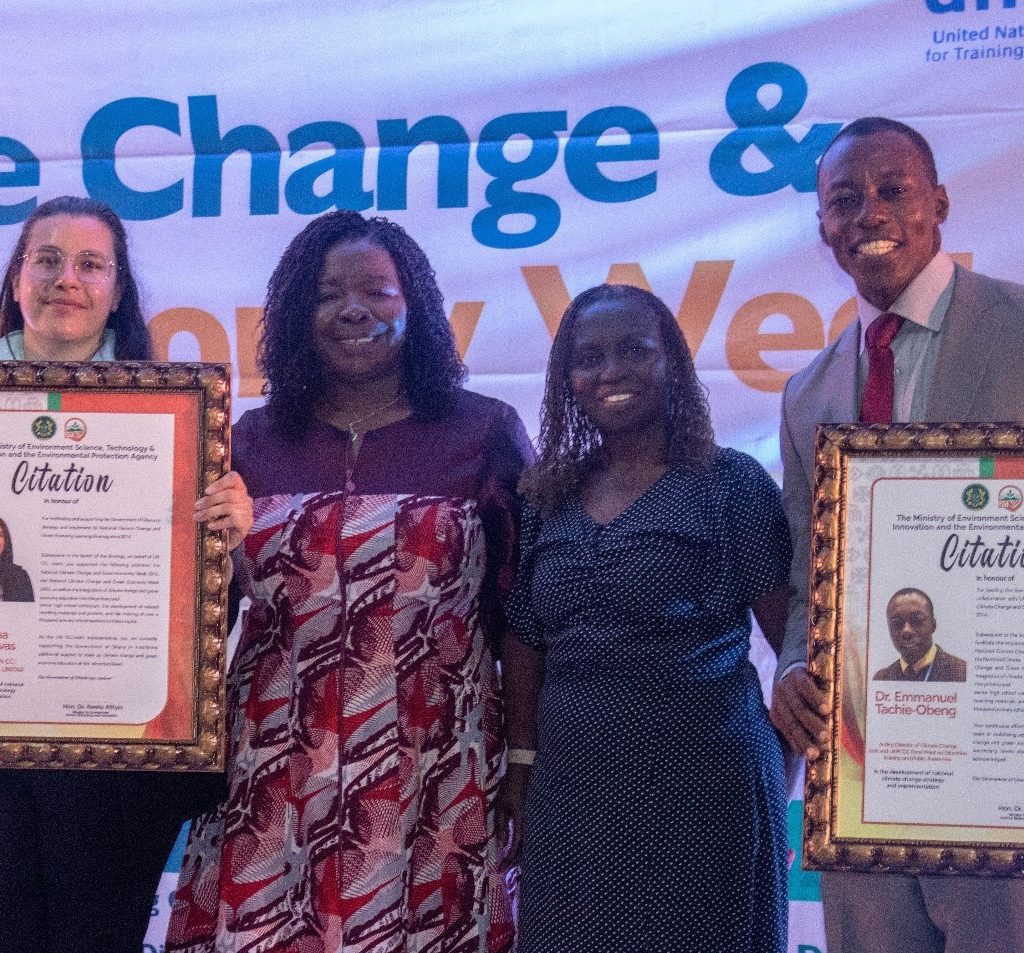
SusDA, has a project called ‘SUAHUNU’. This project gives firsthand insight of environmental preservations, climate change and as a bonus, children get to know of tourist sites such as Bunso Eco Park, Shai Hills, Kokum eco park amongst others. All of these are to teach the children the importance of Greens in our environment and the roles trees and other plants play in the fight against Climate Change and it also peaks their interests in preservations of tress and other plants. This project does not only educate the children, it also helps them develop love for nature. Since they are the future of the nation, getting them involved now would go a long way to benefit Ghana and the world as a whole.
Taking children to these tourist sites would also peak their interests in visiting such places in the country rather than traveling out of the country to enjoy such sceneries elsewhere when they are grown. This country is blessed with gigantic historic trees and beautiful sceneries and SusDA believes that Children are the heart of every nation.
SusDA’s diligence and immense involvement in the fight against climate change and our participation in the activities of the national celebration, earned the NGO a certificate of participation in the just ended Climate Change and Green Economy Week Celebrations.
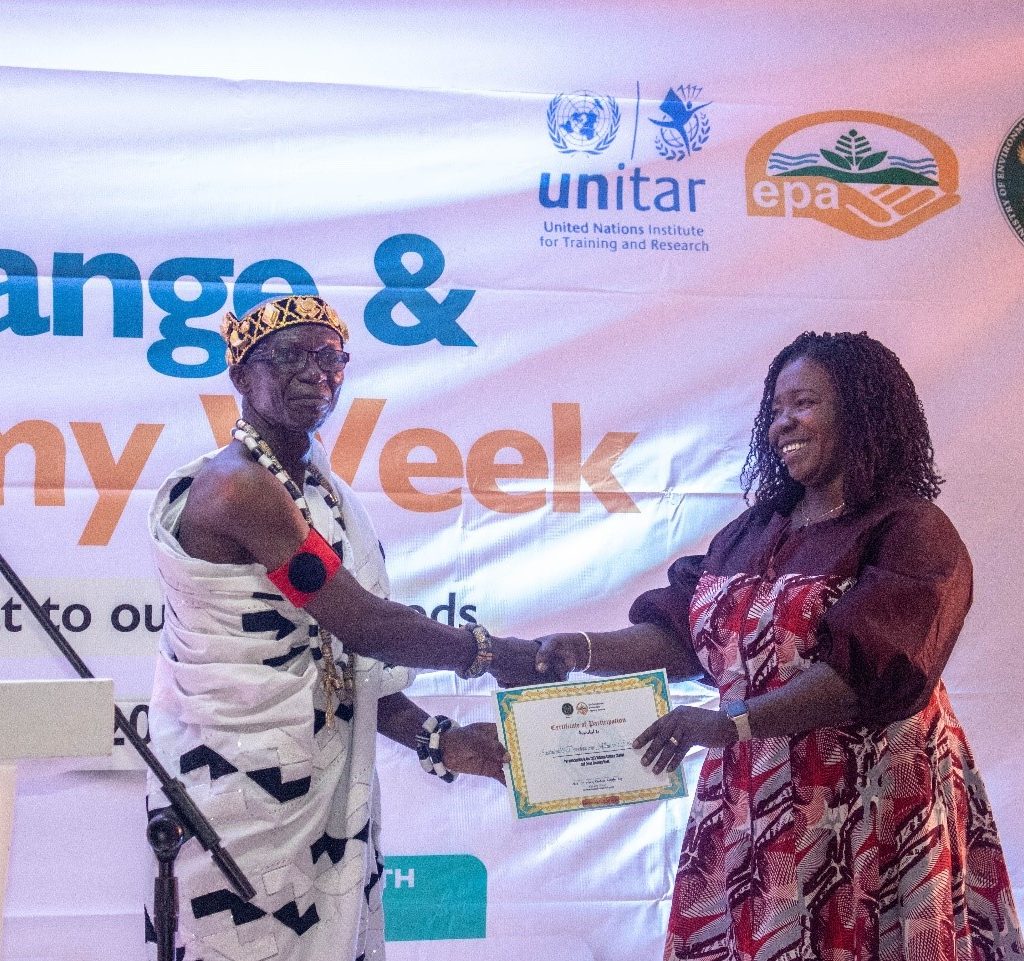
SusDA, has a project called ‘SUAHUNU’. This project gives firsthand insight of environmental preservations, climate change and as a bonus, children get to know of tourist sites such as Bunso Eco Park, Shai Hills, Kokum eco park amongst others. All of these are to teach the children the importance of Greens in our environment and the roles trees and other plants play in the fight against Climate Change and it also peaks their interests in preservations of tress and other plants. This project does not only educate the children, it also helps them develop love for nature. Since they are the future of the nation, getting them involved now would go a long way to benefit Ghana and the world as a whole.
Taking children to these tourist sites would also peak their interests in visiting such places in the country rather than traveling out of the country to enjoy such sceneries elsewhere when they are grown. This country is blessed with gigantic historic trees and beautiful sceneries and SusDA believes that Children are the heart of every nation.
SusDA’s diligence and immense involvement in the fight against climate change and our participation in the activities of the national celebration, earned the NGO a certificate of participation in the just ended Climate Change and Green Economy Week Celebrations.
